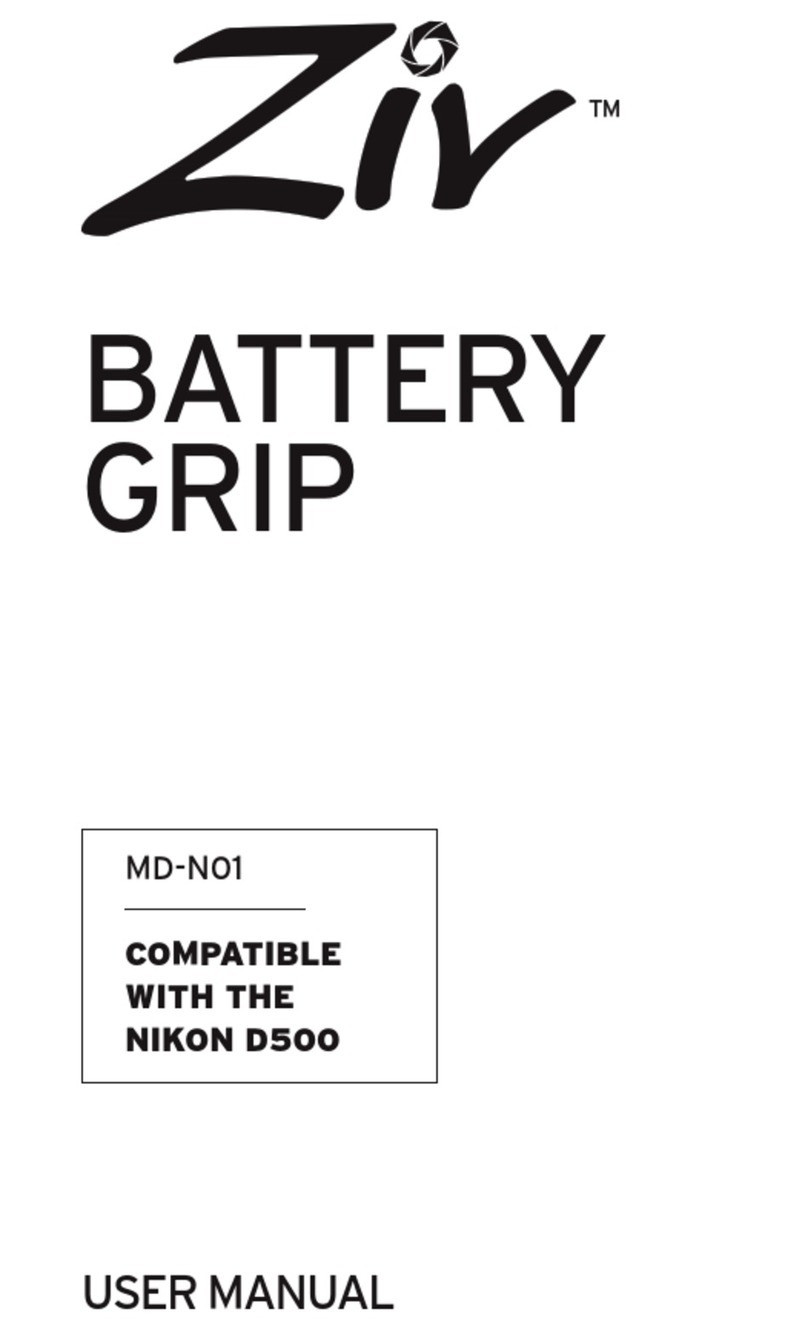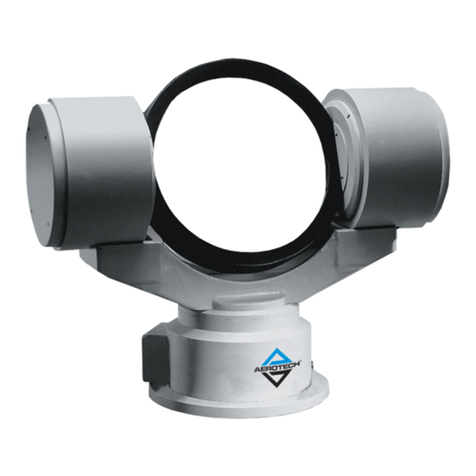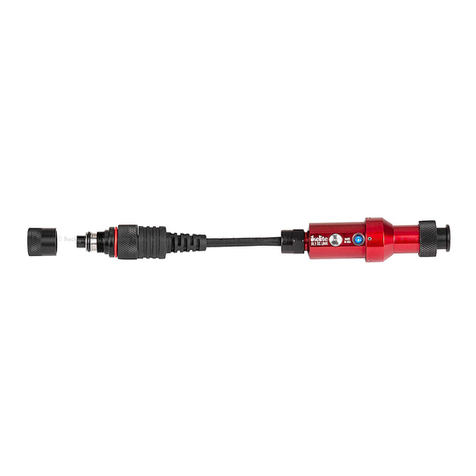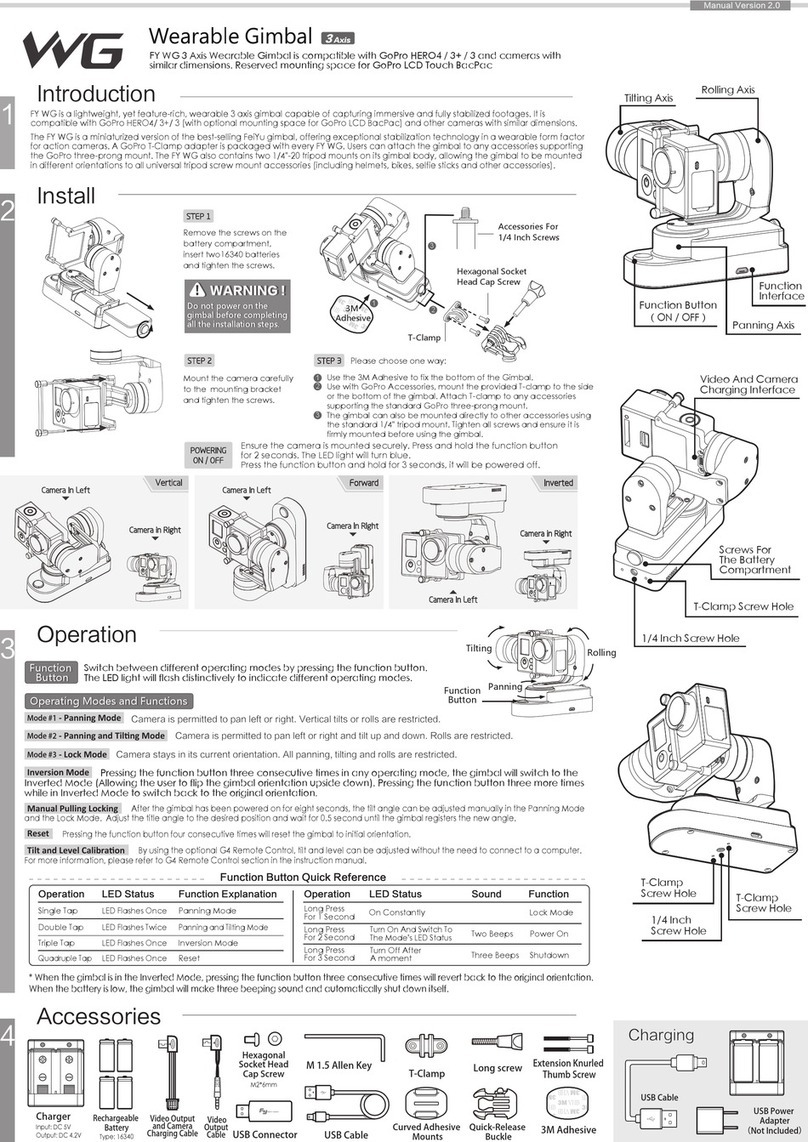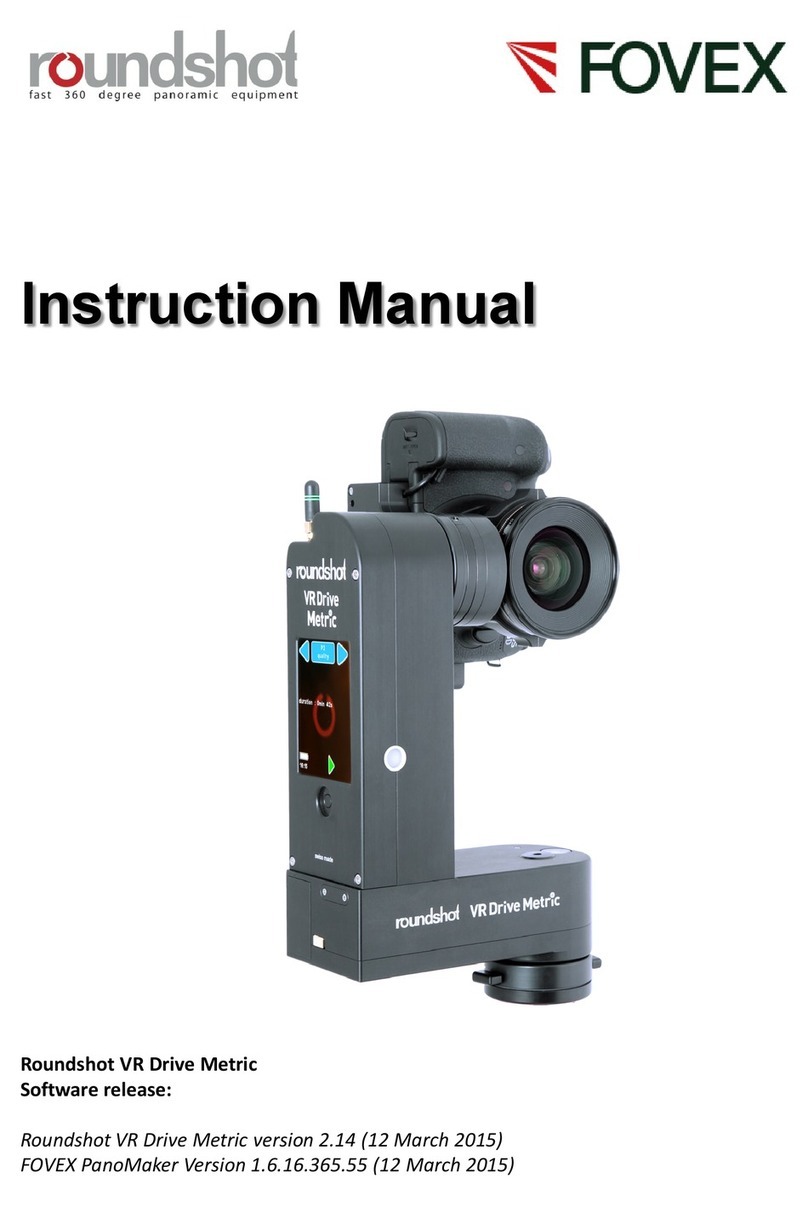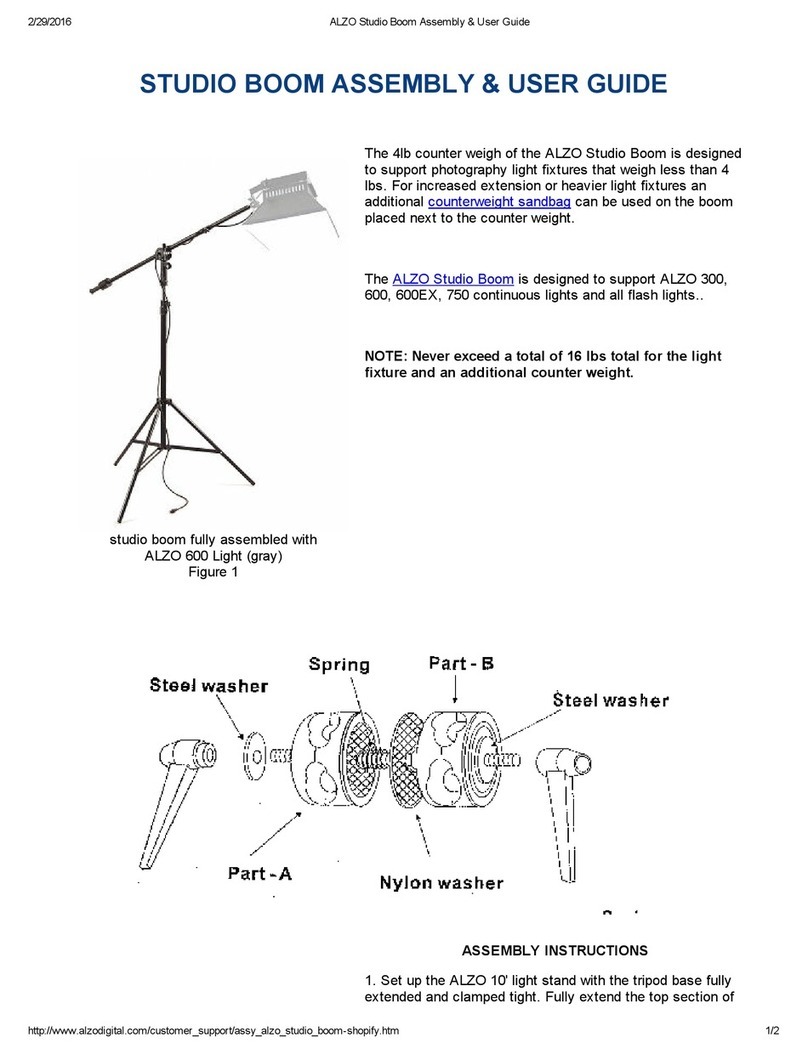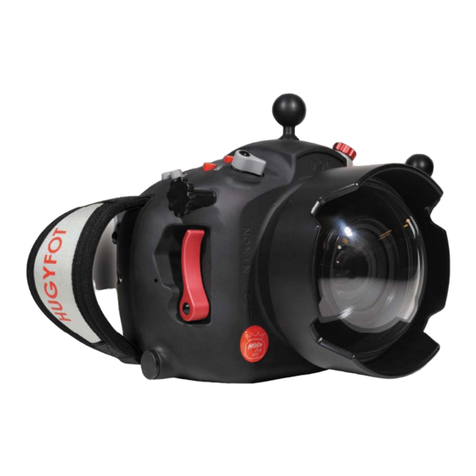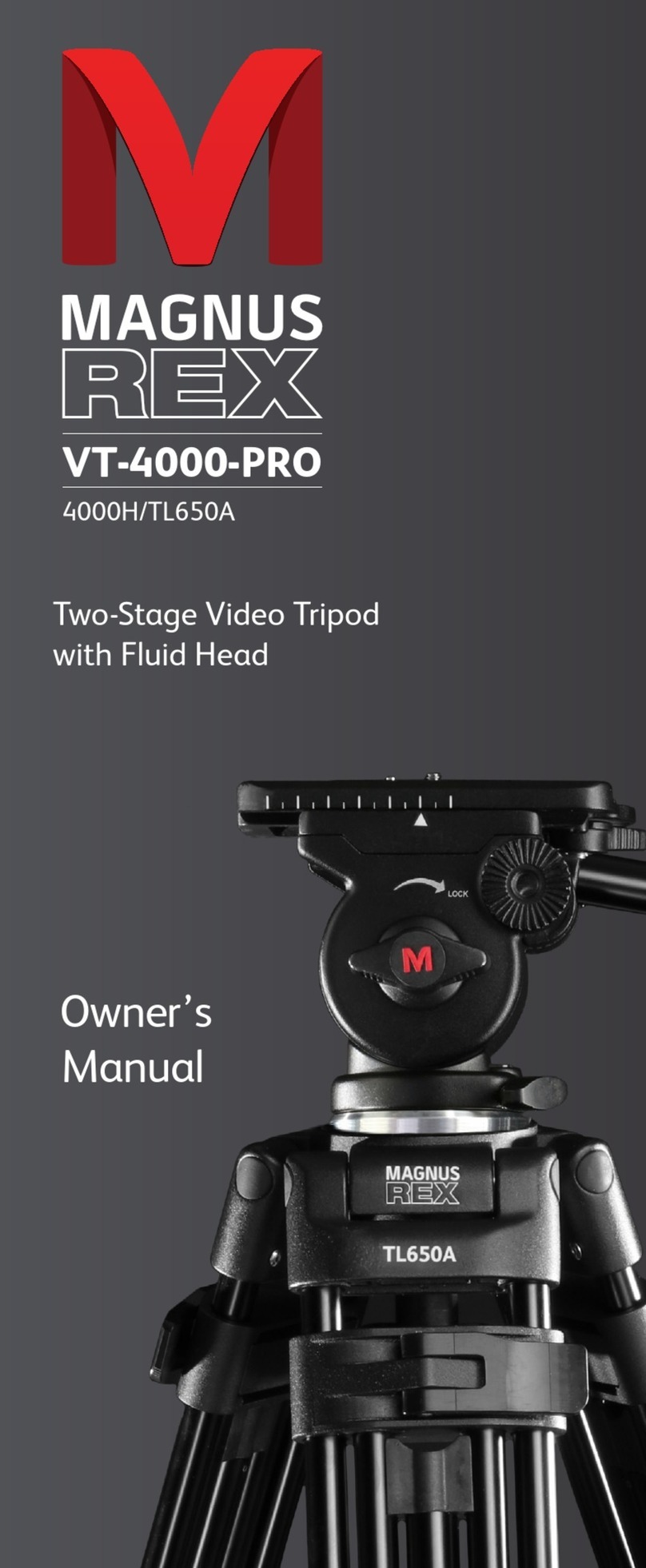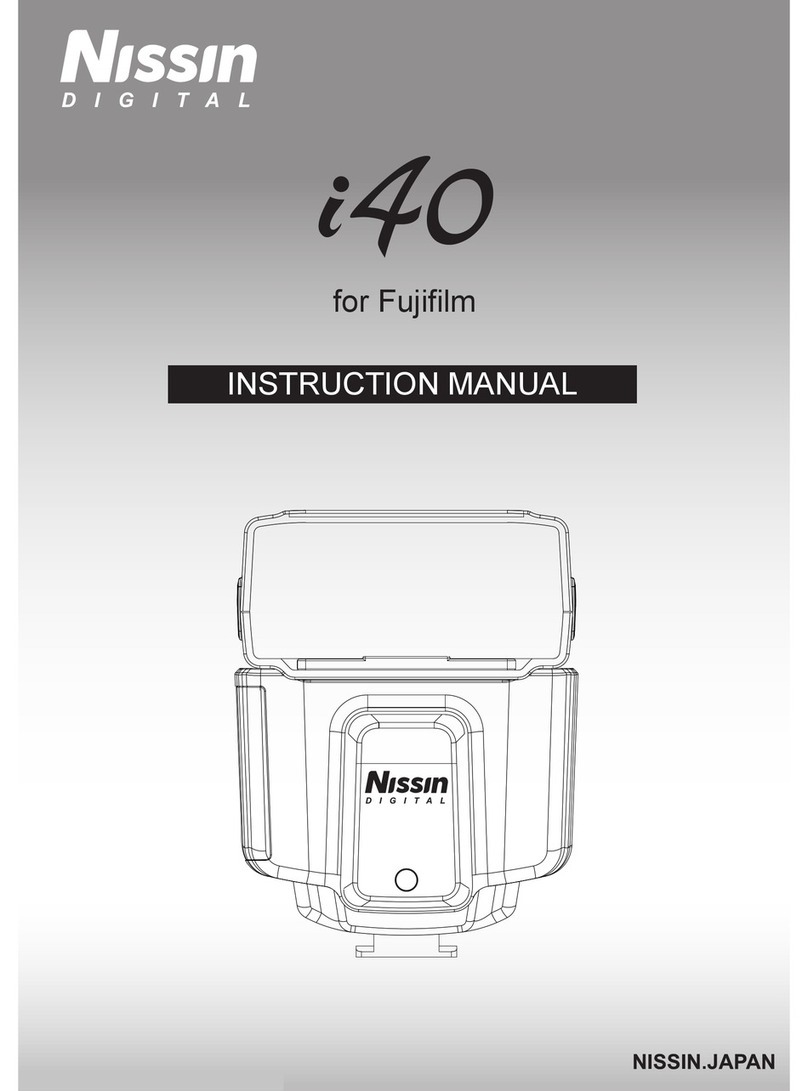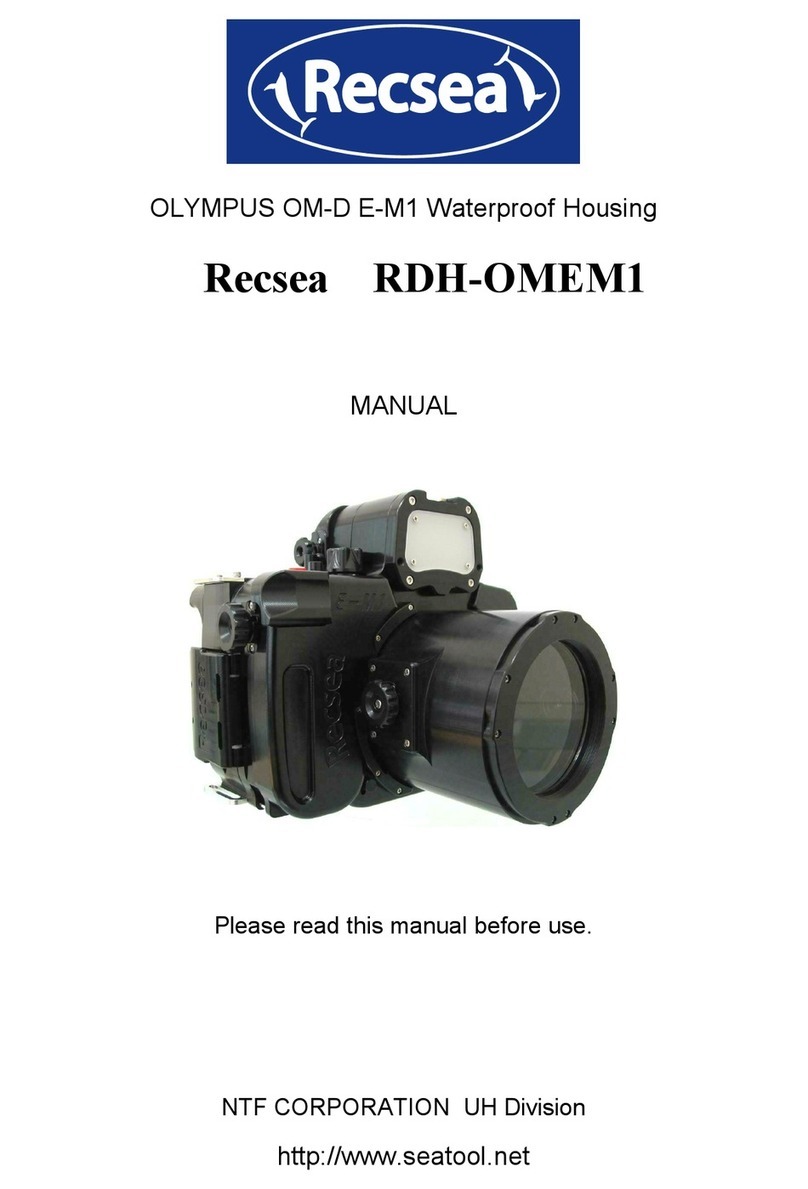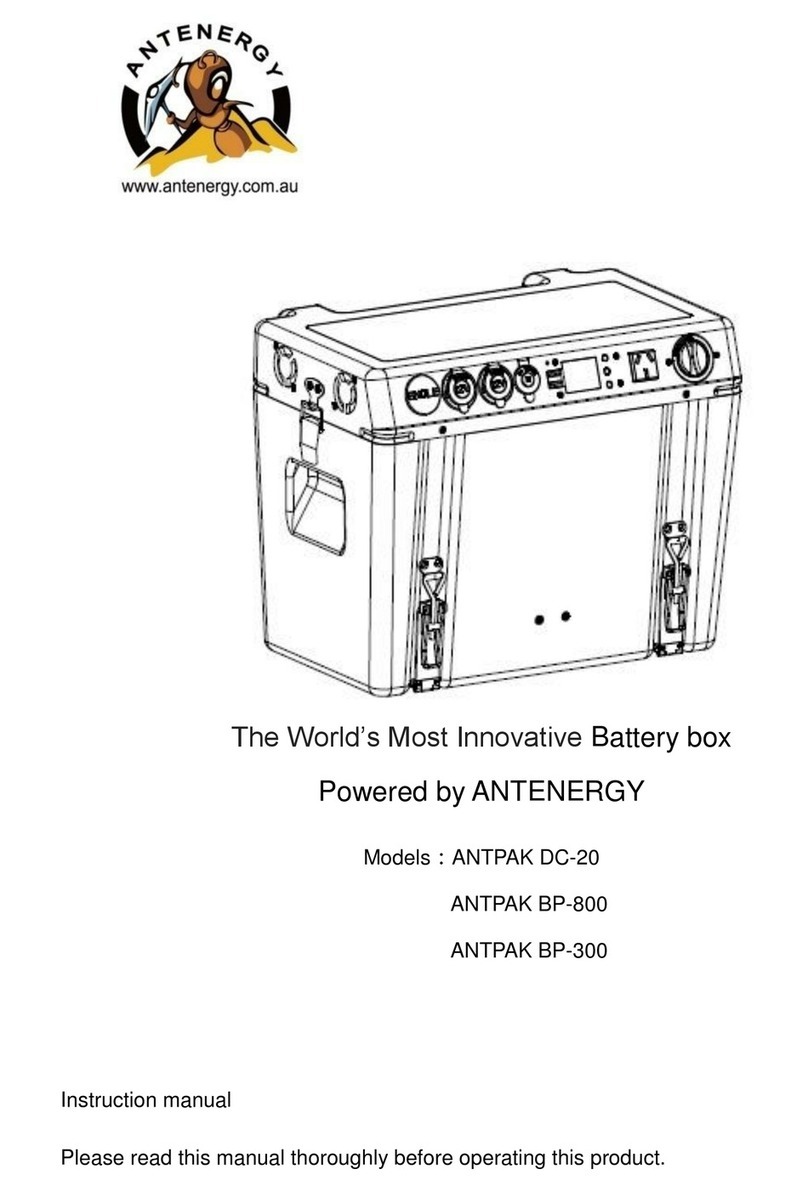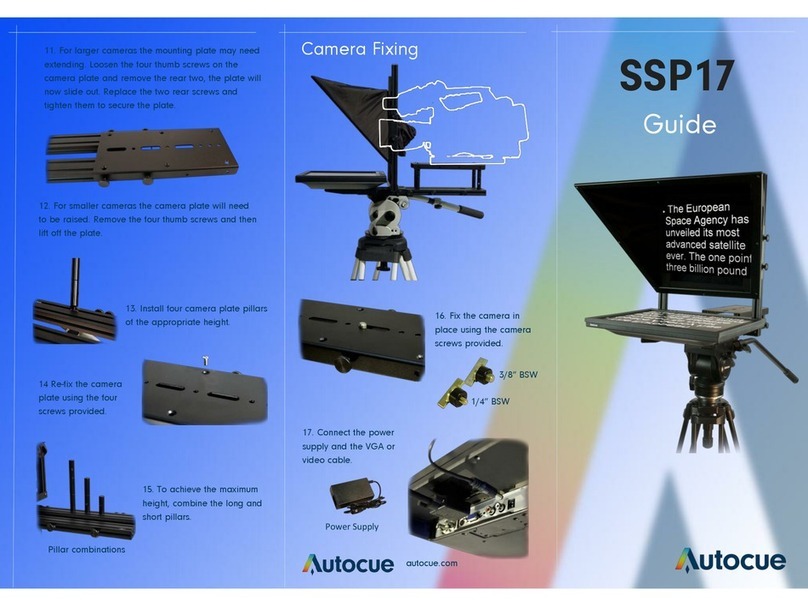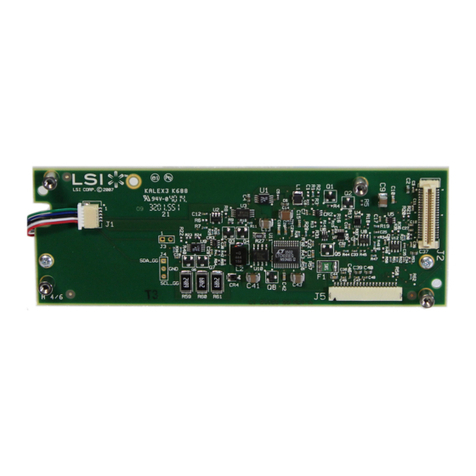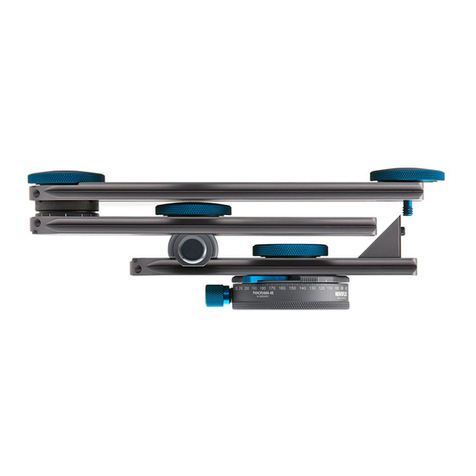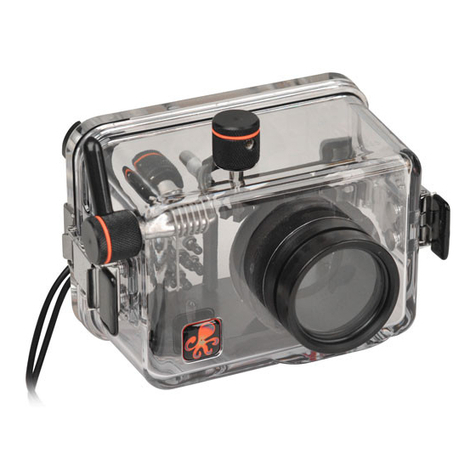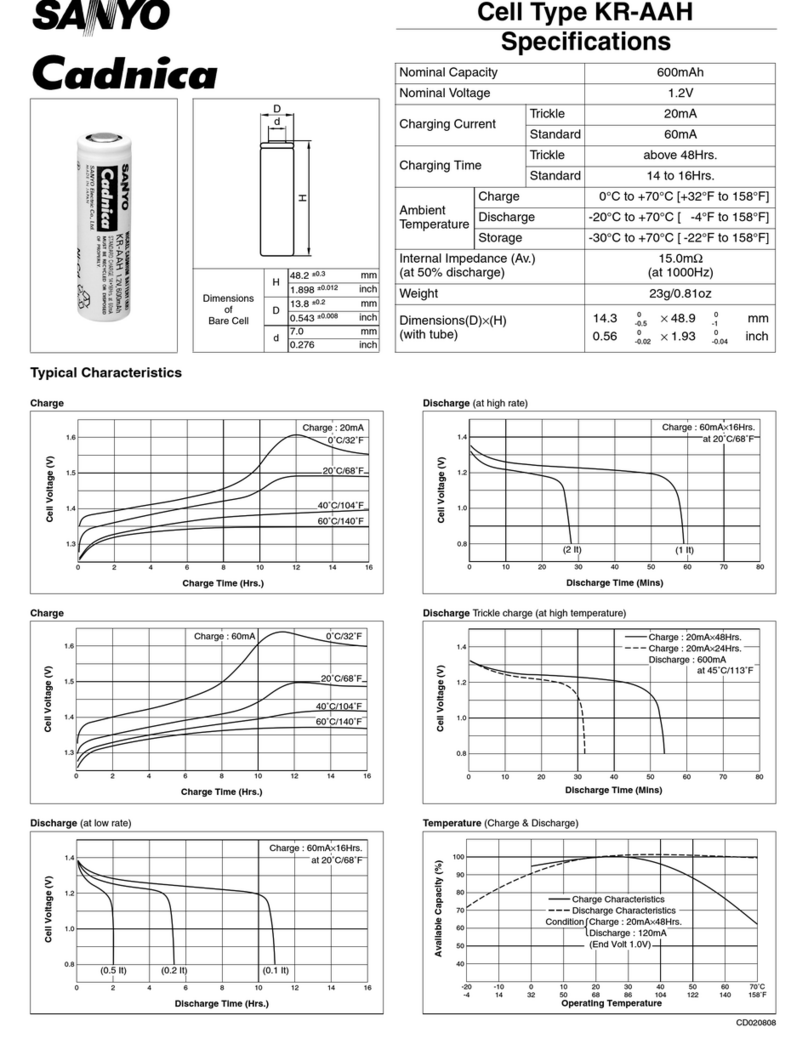Miles Research CRCS-FH4 User manual

Miles Research –User Guide for CRCS-FH4 Chinrest-Camera Support 1
141 E 13th Ave, Escondido, CA 92025-5802 - Tel: 760-746-7415 - www.milesresearch.com –info@milesresearch.com
User Guide for CRCS-FH4 Chinrest-Camera Support
Premium Professional Chinrest/Camera-Support (CRCS-FH4)
Tabletop Fluid-Head Chinrest (CRCS-FH4)
The CRCS-FH-4 is the top-recommended model of chinrest-camera support.
Ideal for the busy professional clinic, this chinrest facilitates efficient image acquisition. Live-View for on-
screen focusing (rather than peering through the viewfinder) and use of camera control software is
facilitated by the use of a chinrest.
The design positions the camera so the center of gravity is typically directly over the camera support pillar
for maximum stability. An optional calibration bezel is available for the focusing stage.
This unit may be disassembled by the user for easier transport, and fits in a 24”x12”x6” space.
This precision chinrest features:
Precision focusing stage
Professional fluid head positioner
Chin height adjustment
Sturdy quick-release camera mount
Replaceable chinrest papers
Sturdy bamboo hardwood platform
Solid red oak camera support pillar
Small footprint (about 11”x14”)
Non-slip, non-mar rubber feet
Easily disassembles to 24”x12”x6”
Adjustable camera mounting
Balanced for camera center of gravity
Camera mount: 11-12” nominal (from iris)
Eye height: 16.5” above counter top

Miles Research –User Guide for CRCS-FH4 Chinrest-Camera Support 2
How to Set Up the Chinrest/Camera-Support
The Chinrest is normally shipped with the following parts:
1. Wooden tabletop base
2. Chinrest frame
3. Camera support pillar
4. Chinrest papers
5. Hex wrenches: 2.5mm to attach chinrest frame to base; 5/32” to adjust camera bracket mounting bracket
Plus this User Guide.
Step 1: Prepare to mount camera support pillar:
Remove thumbnut and (optional) washer from the bottom mounting post of the camera support pillar.

Miles Research –User Guide for CRCS-FH4 Chinrest-Camera Support 3
Step 2: Insert Camera Support Pillar into base:
Step 3: attach thumbnut:

Miles Research –User Guide for CRCS-FH4 Chinrest-Camera Support 4
Step 4: Tighten camera support pillar mounting on base:
Recent models include a thumbnut on the bottom for easy take-down and transport. When assembling the camera
support pillar it is important to tighten the mounting by holding the wooden pillar with the left hand and turning it
tight while holding the thumbnut with the left hand.
For mounting the camera support pillar with a hex nut (5/16”-18), follow these steps 4 & 5:
Use a 9/16” wrench to tighten the mounting nut.

Miles Research –User Guide for CRCS-FH4 Chinrest-Camera Support 5
Step 5: With the base on a tabletop, insert the chinrest frame (chinrest adjustment ought to be on the right as shown):
Step 6: With the chinrest firmly seated into the base, use the 2.5mm hex wrench to tighten the set screws:
The 2.5mm hex wrench is the smaller one.

Miles Research –User Guide for CRCS-FH4 Chinrest-Camera Support 6
Step 7: Attach quick-release mounting plate to camera mount hole (1/4-20, bottom center of camera body).
Note: if the chinrest is part of a camera order, the camera will already have the quick-release plate attached (skip to
page 8).
First, review the quick-release unit:
Pull the release lever out (towards rear) and lift out the quick release plate:

Miles Research –User Guide for CRCS-FH4 Chinrest-Camera Support 7
Notice that one edge of the removable quick-release part has a flange –this fits into the front or forward side of the
quick-release base. This edge needs to be pointing towards the lens (front end of camera):
Turn over this part and you will see a small arrow pointing towards the flange that has the word LENS imprinted
(disregard the other arrow). This edge goes towards the front of the camera (towards the lens):
Turn over the camera body and observe the mounting hole in the center:

Miles Research –User Guide for CRCS-FH4 Chinrest-Camera Support 8
The removable part of the quick-release is placed over the threaded mounting hole and the mounting bold is
tightened (clockwise) using the fold-up handle:
Make the part parallel to the lines on the bottom of the camera for best alignment. When the part is attached snugly
and the handle is folded down, it should look like this:
With the quick-release plate firmly attached, hold the camera with your right hand and tilt it downwards to engage
the front flange of the plate with the receiving (fixed) part of the quick release:

Miles Research –User Guide for CRCS-FH4 Chinrest-Camera Support 9
When the rear edge of the quick-release plate is moved into place, it will press down a small brass button that will
release the lever:
The lever will snap partway shut. Press it closed tightly to complete the camera mounting:
The small brass lever is a release lock: when it is rotated to the right, the lever will not open. To open the
lever, be sure the release lock is pointing straight towards the rear. The release lock may safely be left in the
unlocked position.

Miles Research –User Guide for CRCS-FH4 Chinrest-Camera Support 10
Your chinrest is now ready to use with your camera:
The camera mounting bracket is normally shipped pre-configured for an 11.0” working distance (suitable for
the Nikon 85mm lens at 1:1 (maximum magnification, closest focus). For cameras with a longer lens such as
the Nikon 105mm macro, change the mounting hole of the camera bracket to the 1-inch longer setting using
the enclosed 5/32” hex wrench. This sets the camera back to a 12.0” working distance. This is based on the
typical eye with the camera at the mid-point of its focus track travel. The focus stage can adjust +/- 20mm
(40mm total travel).

Miles Research –User Guide for CRCS-FH4 Chinrest-Camera Support 11
Chinrest Papers
Next, be sure that some chinrest papers are in place on the chinrest. Replacement packs of 500 chinrest
papers are available from your chinrest seller. The holes have a spacing of 92mm and the part# is CRP-92.
Normally you will want only about 100 or so papers in the chinrest at a time, so just load about 1/5 of the
pack.
The chinrest papers are held in place with plastic pins:
In addition to removing the top chinrest paper prior to each use, be sure to sSanitize the chinrest and forehead rest
before each client use, with an alcohol prep pad and/or a facial tissue:

Miles Research –User Guide for CRCS-FH4 Chinrest-Camera Support 12
Lid Retraction
When photographing the eye, the client needs to be observing the center of the lens with the eye being
photographed. Many people have a dominant eye that will be looking around at random points, so it is
always best to have the eye not being photographed covered, either with a handheld paddle occluder, or
(preferably) the clients own hand on that side.
The preferred method of lid retraction for those clients who cannot open the eyelids sufficiently, is to use
assisted lid retraction. In this method, the client is asked to cover the opposite eye (eye not being
photographed) with the hand on that side and with the other hand gently pull down a bit on the lower lid.
Meanwhile the photographer uses a cotton-tipped applicator to roll the upper lid away from the eye in
order to reduce glare and reflections.
Another method is for the photographer to retract both eyelids using two cotton-tipped applicators:
